by Glenn | Aug 26, 2012 | Writing
Glenn’s Note: I have always stated Nicholas Guild is one of the few select authors I consider as my mentor of the writing craft. After all, one should choose the best to learn from. He’s been 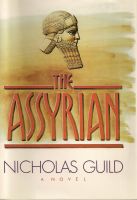 writing since 1975, has been published around the world with many of his works being international bestsellers, and as Publishers Weekly described him, is “…a master of timing, plot and style.” From The New York Times Book Review to the Washington Post, Nicholas Guild has received accolades aspiring writers dream of, and published authors wish for. I’m honored to present this article written by him for my website. His generosity in setting time aside to do so during his hectic schedule is truly appreciated. There is much to learn from my friend and I hope you will enjoy this as I did.
writing since 1975, has been published around the world with many of his works being international bestsellers, and as Publishers Weekly described him, is “…a master of timing, plot and style.” From The New York Times Book Review to the Washington Post, Nicholas Guild has received accolades aspiring writers dream of, and published authors wish for. I’m honored to present this article written by him for my website. His generosity in setting time aside to do so during his hectic schedule is truly appreciated. There is much to learn from my friend and I hope you will enjoy this as I did.
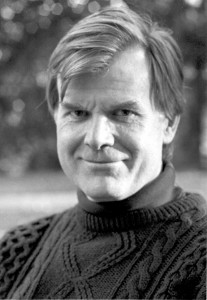 THE CHARACTER OF CHARACTER by Nicholas Guild
THE CHARACTER OF CHARACTER by Nicholas Guild
When I was teaching literature I had a colleague who liked to say, “There are no characters in fiction, only words,” and at the most literal level he was, of course, correct. A novel is merely another species of rhetorical performance, and when we read a story nothing happens in the world outside our nervous systems. We are only processing words.
The problem is that my colleague’s maxim is only literally true. It does not correspond to the ways people, both readers and writers, experience fiction. There is what Coleridge called “the willing suspension of disbelief.” We know, for example, that Elizabeth Bennett and Darcy are not real people and therefore they never actually fall in love, yet we always experience relief and pleasure when at last they come to a right understanding of each other. When we talk about any particular novel or story we talk about the characters as if they were real because on some level they are real for us. There is even a certain amount of neurological evidence that readers experience fiction in much the same way that we all experience real life, and with something like the same intensity. 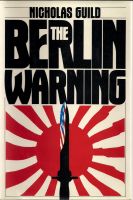
And when we talk about characters in fiction we are not far from the way we use the word “character” in real life. For instance, when we describe some real person as a “character” we are referring to a bundle of behavioral quirks that distinguish that person. Our impression of that person is defined by peculiarities of speech, dress, behavior, appearance, etc. which he or she exhibits. Thus in our imagination Theodore Roosevelt always has pince-nez glasses, a walrus moustache and, when he smiles, enormous teeth—and he is always describing things as “bully”.
Comic characters frequently have “character” in this sense. Mr. Micawber in David Copperfield always speaks with a comic formality which is instantly recognizable and is always waiting for “something to turn up.” Mr. Collins in Pride and Prejudice is always expatiating on the wealth, grandeur and “condescension” of his patroness Lady Catherine de Bourgh. Mammy Yokum in Li’l Abner of blessed memory always smokes a pipe, ends every discussion with the words “Ah has spoken!” and could have beaten Jack Dempsey to a pulp. Such characters are usually what E.M. Forster described as “flat”—two dimensional and with no psychological depth, no more than the sum of their mannerisms.
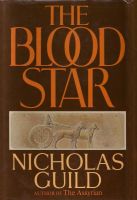 Of course not all flat characters are comic. Television abounds with heroic types who are essentially flat. My personal favorite was always Steve McGarrett of Hawaii 5-O (if anyone remembers that series). He had a vocabulary of about four words—“Book ‘em. Murder One!”—and it is impossible to imagine what his childhood would have been like. But generally speaking we expect non-comic characters in fiction to have a little more depth. To use Forster’s term, we expect them to be “round”.
Of course not all flat characters are comic. Television abounds with heroic types who are essentially flat. My personal favorite was always Steve McGarrett of Hawaii 5-O (if anyone remembers that series). He had a vocabulary of about four words—“Book ‘em. Murder One!”—and it is impossible to imagine what his childhood would have been like. But generally speaking we expect non-comic characters in fiction to have a little more depth. To use Forster’s term, we expect them to be “round”.
Round characters are those we can imagine having an inner life. They are allowed, even expected, to exhibit contradictions. They are human the way we are human.
But to my mind there is one possible difference. Our sense of “character” in fiction is in many ways close to another way we use the word in real life, which is essentially moral. We speak of people as possessing “character” as an attribute, like eye color. George VI of England showed “character” during World War II by identifying himself personally with the goal of victory. He refused to let his family seek safety in Canada and he made it clear he would not come to any kind of terms with the Germans, even if England were overrun and occupied. He was prepared, apparently, to fight to his dying breath, and thus he revealed—or appeared to reveal—the core of his nature.expected, to exhibit contradictions. They are human they way we are human.
It is open to question whether any of us really have such unified personalities. Perhaps all we have are random clusters of impulses. I don’t pretend to know. But such unity is precisely what we expect to find in fictional characters.
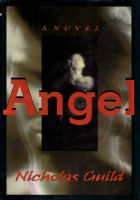 Of course fictional characters have the advantage of being knowable in a way real people simply are not.
Of course fictional characters have the advantage of being knowable in a way real people simply are not.
Our knowledge of the external world, and that includes our knowledge of other people, comes through the senses. We see other people, we hear them, we touch, smell and sometimes 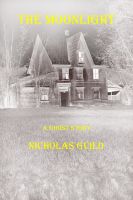 even taste them. Yet we are constantly being blindsided by our fellow mortals and discovering that the person we thought we knew doesn’t exist, is actually another sort of person altogether, and the reason this happens is not difficult to discover.
even taste them. Yet we are constantly being blindsided by our fellow mortals and discovering that the person we thought we knew doesn’t exist, is actually another sort of person altogether, and the reason this happens is not difficult to discover.
What do we actually know about anyone else’s inner life? Only what they choose to show us, or let slip—in other words, a highly edited version.
But characters in fiction are open to us. The author, who created them, tells us what they are thinking, sometimes even gives us a transcript. Their desires and anxieties are, quite literally, an open book to us. Therefore it is possible for us to know that core we think of as the essence of each person’s private humanity.
Thus, while we only intermittently judge each other, our moral judgments of characters in fiction are relentless. It is a point writers forget at their peril: readers read from within the context of their most conservative morality.
It is also worth remembering that controlling the sympathy of a reader is a complicated business. Think of the reader as resembling a bull wearing blinders and a ring in its nose. It can only see straight ahead, and straight ahead is a direction you control. The writer creates an imaginary world and all the reader can experience of it is what he or she is shown. The writer is in control, so he or she had better be careful.
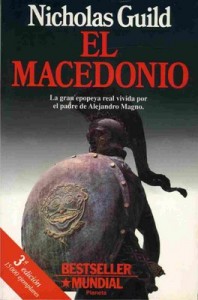 A student of mine once wrote a story about the interior life of a girl in a coma. The problem was that the girl had reached this state by mixing drugs and alcohol, which my student seemed to regard as the moral equivalent of being struck by lightning. It took me a while to convince her that the reader would judge her character negatively and that this would affect the impact of the story in ways she hadn’t anticipated and didn’t want.
A student of mine once wrote a story about the interior life of a girl in a coma. The problem was that the girl had reached this state by mixing drugs and alcohol, which my student seemed to regard as the moral equivalent of being struck by lightning. It took me a while to convince her that the reader would judge her character negatively and that this would affect the impact of the story in ways she hadn’t anticipated and didn’t want.
That was the sort of oversight which hopefully is restricted to the very young (my student, as I remember, was nineteen). Every writer wants the reader to be on the side of their hero or heroine. But the same considerations apply when you are creating a villain.
Villains are tough. If you make them too evil the reader will lose interest. Thus you have to make your villains credibly human. Why do they do all those terrible things? What do they want? The essence of the thing is that everyone has a point of view, even Jack the Ripper and Adolf Hitler, and real people are more interesting than monsters. The reader needs at least to understand the bad guy, so always provide him with a backstory.
End of sermon.
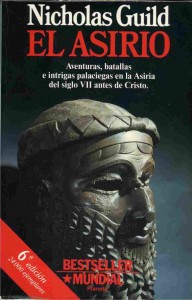
by Glenn | Aug 6, 2012 | Writing
It was a wonderful surprise and honor to receive an email from Joyce Faulkner, President of the Military Writers Society of America, which said: “Congratulations, Glenn! Your novel “Solomon’s Men” has been nominated as a finalist in the Mystery/Thriller genre of our 2012 Conference…” 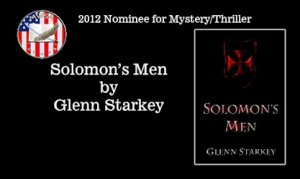
I say ‘surprise’ because that is exactly what it was… “Solomon’s Men” had been reviewed by a MWSA reviewer and received a very nice write-up which is posted on Amazon and Goodreads websites. Unknown to me, the reviewer entered my work in their upcoming conference to be held in September at Dayton, Ohio. MWSA yearly reviews hundreds of books and to be selected as a finalist is an honor in itself for me.
 The Military Writers Society of America is an organization with a large membership of current and former military personnel, as well as persons related and connected with the military services in some manner. The writers in the organization, and the categories and volumes of books you will find in MWSA is phenomenal. If you are a historian, served in the military, are researching wars your loved ones served in, or simply looking for good books of any genre to read, then Military Writers Society of America is for you. I highly recommend you stop in and browse the site, especially if you are a veteran. There are a lot of discussions on many topics of interest.
The Military Writers Society of America is an organization with a large membership of current and former military personnel, as well as persons related and connected with the military services in some manner. The writers in the organization, and the categories and volumes of books you will find in MWSA is phenomenal. If you are a historian, served in the military, are researching wars your loved ones served in, or simply looking for good books of any genre to read, then Military Writers Society of America is for you. I highly recommend you stop in and browse the site, especially if you are a veteran. There are a lot of discussions on many topics of interest.
And if you are on Goodreads, visit the MWSA Awards 2012 Nominees list of books and click a vote for “Solomon’s Men.” This has nothing to do with the conference awards, but is for recognition of the books.
Now comes the waiting to learn the final outcome of the nomination. To be recognized by MWSA is honor enough…winning the category will be the icing on the cake.
by Glenn | Jun 1, 2012 | Writing
 I’ve been away from my computer for several days. I needed time to think about my writing path, plus a long list of unattended activities demanded attention. Sometimes a writer needs a break in the form of physical work. It helps clear your head and allows you to refocus on your overall efforts.
I’ve been away from my computer for several days. I needed time to think about my writing path, plus a long list of unattended activities demanded attention. Sometimes a writer needs a break in the form of physical work. It helps clear your head and allows you to refocus on your overall efforts.
On March 4th I wrote the article Missing in Action, Part 1: Author Nicholas Guild, “The Assyrian”. He’s the one author I’ve always considered the finest example of a true historical fiction writer. I wrote the article and never anticipated Nicholas Guild would read it. After all, here was an esteemed author who left the literary world with awards, accolades, and multiple published books that have been translated into several languages. Guild has never heard of me and I seriously doubt if he’s even seen my works or my website.
But today, as I returned home after finishing a number of tasks, for some reason I began to think of Mr. Guild and my article about him. I thought of how my break of several days away from writing had let me realize the urge, the desire to create, still remained and was as strong as ever. It was all passing thoughts, the kind you have when you’re tired, sweaty, and need a good shower. Yes, maybe Nicholas Guild just needed a break himself, only he was taking a much longer one than me.
Now, true story: After I showered, poured a cup of hot, fresh coffee and grabbed a cup full of my grandson’s favorite Honey Graham ‘Teddy’ Crackers to munch on (you know, those little bear snacks you can’t stop eating), I sat at my computer to check my website for comments awaiting approval. With the graham cracker container sitting next to my coffee cup, and my left hand steadily reaching in to get a cracker while I’m reading the monitor and my right hand is feverishly working the mouse, I suddenly realized I was reading a comment from Nicholas Guild—‘the’ Nicholas Guild—and that was when I reached deep into my hot cup of coffee instead of the cracker cup. With coffee flying everywhere, me flailing my hand through the air and yelling things I was glad my grandson wasn’t around to hear, I jumped out of my chair. I couldn’t believe it. First, that I had done such a stupid act, and second, that Guild had actually responded to my blog.
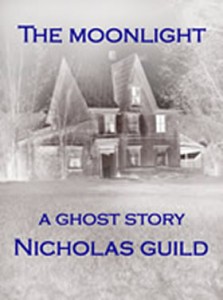 Rushing to wash my hands and wipe coffee off my monitor screen and desk, I finally was able to return my attention to his comment:
Rushing to wash my hands and wipe coffee off my monitor screen and desk, I finally was able to return my attention to his comment:
May 26 2012 Nicholas Guild I just read your highly flattering blog. Thank you for the kind words. I thought I’d let you know that I’m back in front of my word processor and I have a new book out in ebook form, “The Moonlight,” which is a sort of ghost story. I’m now working on another historical, set in 4th Century B.C. Greece.
Yes, after reading it four times, the words had not changed and the name remained the same—and for the sake of personal safety I moved the coffee to the opposite side of my desk. I guess God works in mysterious ways and this was His way of telling me to return to my writings. But, now how do I respond to a man I’ve always wanted to talk to without sounding like a blithering idiot? I just finger dunked my coffee cup so that spoke well of my mental faculties. During the years I performed Executive Protection, I worked with a lot of big names and heavy hitters, but here was someone I truly respected for many reasons. So I typed, then deleted, typed, deleted, and finally arrived at this:
May 31 2012 Glenn Mr. Guild, very few things surprise me anymore but seeing comments from you truly did! Your return to writing is great news and I look forward to reading more of your work. I wish you the best in all of your endeavors.
After clicking the reply button, I sat waiting for a comment to appear as if he were on the other end ready to respond immediately. What can I say? I think he is an excellent author and I was extremely happy to have received his comments to my article.
Nicholas Guild has his first ebook “The Moonlight” now out – and it’s his first try at horror. In addition to that, he is working on another historical—the first in many years. I went to his website, downloaded a sample of “The Moonlight” and intend to read it tomorrow. Nicholas Guild is returning to his writings, life is good, and my burned fingers will eventually heal….
There are a lot of lessons to be learned in this, aside from keeping crackers and coffee apart from one another while you read. We’re all human, with shortcomings, personal faults, and 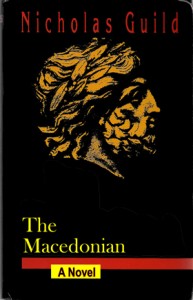 problems that stir our souls. Guild was at the top of his game when he chose to take a break for whatever reasons. But he returned to writing because it’s simply in his blood to create. He may have left for a while to go teach, yet he returned. I returned to my writings after ten years away. You can’t fight what you truly are any more than a leopard can change its spots. Nicholas Guild was born to be an author. There is no denying that fact after you read one of his novels.
problems that stir our souls. Guild was at the top of his game when he chose to take a break for whatever reasons. But he returned to writing because it’s simply in his blood to create. He may have left for a while to go teach, yet he returned. I returned to my writings after ten years away. You can’t fight what you truly are any more than a leopard can change its spots. Nicholas Guild was born to be an author. There is no denying that fact after you read one of his novels.
Good luck, Mr. Guild. Someday I hope you will read one of my novels with equal pleasure as I’ve read yours. And feel free to write me any time you wish.
Warmest Regards,
Glenn
http://www.nicholasguild.com
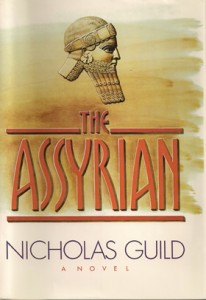
by Glenn | Apr 23, 2012 | General, Writing

But does my library love me?
Excuse me while I stand on my soap-box for a moment. Sometimes I just need to vent…and this is one of those times.
I’ve always been a strong supporter of education and literacy. Whether you are a child or an adult, the importance of good education and the ability to read is critical. Individuals and society as a whole benefits from it, and the future course of a nation depends upon the decisions of well-informed, well-read citizens.
The drop-out rate from high schools across our country remains high. When I learned of a local program to counsel students returning to complete their educations, I volunteered to be a mentor. I also volunteer as a “Reading Buddy” at an elementary school to assist children that have home-life problems associated with their reading skills. And being a writer, literacy is one issue I rank at the top of my concerns.
I’ve always been a strong supporter of public libraries. The Internet may have decreased their usage and forced many branches to close or reduce staff, but I believe a good public library system establishes a knowledge center for communities to build upon. From youth I’ve always considered a library to be a valuable resource for everyone. 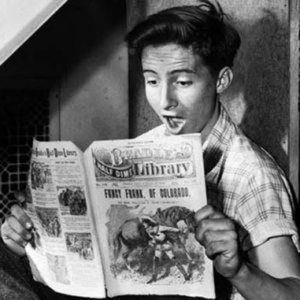
As a writer, especially being an “Indie-Author,” I already have a sufficient number of obstacles to overcome without adding my local library system to the fray. Aside from the writing, editing, publishing, and marketing headaches of moving my novels from computer to reader, (and of course, battling the constant stigma of being unpublished by big houses), I’ve taken my share of hits. Recently, my own local library gave me a gut-punch that left me frustrated.
In December of 2011, still relishing the author’s joy that accompanies the release of a new novel, I took a copy of each of my three novels (brand new, mint condition, and autographed) to the Brazoria County Library System branch library in my small town of Alvin, Texas. The librarian was gone but the assistants accepted my donations and stated they would be processed into the system for citizens to read. I left with a great sense of having made a contribution to my community. One day, I thought, someone may come, read my books for free and enjoy themselves.
In March of 2012 I happened to be in the library for a meeting. While there I checked their computer system for my works and couldn’t locate them. I asked the assistants where my donated books might be and they in turn passed the search information on to the head librarian. Fast forward now to today, the end of April, two full months after not receiving a word from the librarian, I received a polite “gut-punch” letter attached to an email:
(even more aggravating is receiving a letter with your name misspelled after giving them your business card)
Dear Mr. Glen Starkey;
I apologize for not contacting you sooner concerning the three books you donated to the Alvin Library… I deeply regret to say that it looks like your donation has been misplaced. It may be your books were mixed in with other donated items and given to the Library League for its book sale…
…All donations are received with the understanding the items become the property of the library, and that acceptance is not a guarantee the items will be placed into the collection. The items must follow the same evaluation criteria for library purchased items. This would include reviews from recognized review sources and the item would also need to have an acceptable binding that would take the stress of being circulated…
…The cataloging of donated items takes time and special handling, especially if it would require what is termed “original cataloging.” Since your books appear to be self- published, there is not an available cataloging record in the correct format from a vendor for downloading into the library’s catalog. This special handling comes at a price and that is why there is a $10 per item charge to cover the cost. Hundreds of items are ordered, received, and processed each month which takes priority over specialty cataloging…
…want you to know how much your interest in the library is appreciated. The library system wishes you good success in your writing career.
They lost my books or they dumped them into the pile of unwanted, discarded library books to sell. Not only that, the librarian goes on to state they were unacceptable because they are self-published, probably did not have acceptable binding, and did not have “…reviews from recognized review sources.” THEN, she has the audacity to say the library requires a $10 per item fee to process them because they are self-published. But she ends it all with a kiss: “The library system wishes you good success in your writing career.”
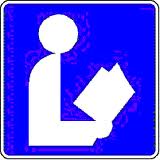 Give me a break! Barnes & Noble won’t stock their shelves with Indie-Author books—and my own local library will only stock their shelves with my books if I pay them $10 per book. How did I reply? As calmly as I could.
Give me a break! Barnes & Noble won’t stock their shelves with Indie-Author books—and my own local library will only stock their shelves with my books if I pay them $10 per book. How did I reply? As calmly as I could.
Thank you for the information.
I have always been an advocate for literacy, volunteering as I do with our school district as a “Reading Buddy” to assist elementary children, promoting reading and education at every turn for adults as well as children.
It is truly disappointing to read your letter and find that because my novels are “self-published,” they are considered below your standards. Although they are distributed by Ingram and doing well internationally on Amazon, Barnes & Noble, Sony, and a list of other booksellers, it is unfortunate my own local library cast them out, loses them, or sells them as books no longer needed.
Yes, it’s ridiculous I cannot donate my novels to my own community library, and my stomach is still sore from yet another “Indie” gut-punch, but it won’t slow my writings or my advocacy of education and literacy.
Maybe equality is the lesson to be learned here. While I want my Indie-published books to be reviewed and treated equal with ‘big house’ books in public libraries, and to receive equal treatment in book stores, we should work toward equal education and literacy for all, regardless of a person’s station in life. But, maybe that’s all in a perfect world scenario.
Thank you. I shall now return my soap-box home to its closet.
Glenn
by Glenn | Apr 15, 2012 | interview, Writing
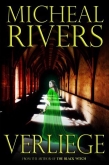
Paranormal Thriller
Paranormal Thriller Author of “Verliege,” “The Black Witch,” “Moonlight on the Nantahala,” and “Ghosts of the North Carolina Shores”
Today, I am truly honored to have Mr. Micheal Rivers, a great paranormal thriller author, as the very first author to be interviewed and presented on my site. Not only have I read several of his books and written unsolicited reviews, but I have also come to know Mr. Rivers as an excellent gentleman and man worthy of being a friend. These accolades of fine character and authorship are well deserved by him and not stated simply for this interview. He is a former (there really is no ‘former’) U.S. Marine, Vietnam veteran, and founder of the Smokey Mountain Ghost Trackers of Western North Carolina. Having stated this, let’s take a moment to learn more about him:
Q: First, thank you for allowing me to interview you. I realize you have a busy schedule and appreciate you taking this time with me. As an accomplished author now with four published novels and more works in progress, how did you start upon the literary path of being a writer? Was there anything in particular which steered you toward this endeavor?
MR: You are very welcome Glenn, it is always a pleasure to talk with you. I wrote for quite awhile actually. During my travels there were times when I sat in motel rooms or places I was visiting and found myself writing for whatever reason. In some of the regions I just threw what I wrote away because the sweat soaked the paper and made it almost unreadable. There was just something inside screaming to get out so I just put on paper. I never thought what I had to write was something someone would want to read until some of my work was submitted without my knowledge. It spiraled from there.
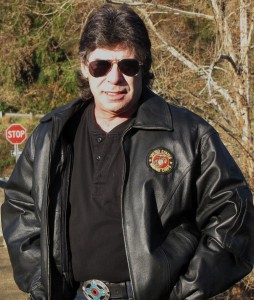
Author Micheal Rivers
Q: You are well known as a paranormal thriller author which is a challenging genre. Have you ever given thought to writing in different genres?
MR: Yes, I have many times. I may write something in the near future other than stories about ghosts. I have two already sitting in the To Do pile that was started in the late 90’s, just never got around to finishing them. Both of these books may give you a big surprise LOL. If you like stories about men in dangerous places you’ll like them both. One is based on a true character and some of his exploits.
Q: “Verliege” is an intriguing thriller…murder, suspense…wrongful prosecution of a man…I’ve only read the first chapter so far and have enjoyed it. If you will, please share some insight on the creation of “Verliege.” Readers always wonder how an author gets ideas. How did this novel come about? How did you develop it? Research it?
MR: I have an above average interest in history and archeology. Castles are a fascination in themselves with the architecture and the history behind them. I have seen a few castles and want to visit more when the opportunity arises. My first wedding was at the Nagagusuku castle ruins in Japan. This started the ball rolling wondering what could have happened there. Interesting fact, a famous pilot crash landed his plane there during WWII and was still on the grounds of the castle in 1972. The castle Verliege is a combination of four different castles in its present state. The rumors of all castles being haunted bring out ideas that you wish you could use them all but it isn’t possible. I had to put together a fictional penal institution and from there take the reader to the castle. It was the research from hell LOL. I had to build a castle, a town and the correctional facility from scratch. From this point the characters had to interact with the setting instead of the other way around.
Q: An experienced author understands the importance of self-discipline in their writings, daily time scheduling, and book marketing. What recommendations do you have for aspiring writers in reference to these matters or others concerning writing?
MR: Good question Glenn. The first thing I would say is do not follow my lead on this. I am as disciplined as a bear who discovered a honey bun. Book marketing takes a lot of time and covers too much of a day. I would rather sandpaper a lion’s bottom than do marketing. The way I write is to catch the wave so to speak. When the ideas begin to flow I write at that time. I write late at night mostly and sleep comes when I have to. I would advise new writers to make their outlines and follow them until they find out what works best for them. I start an outline but little of it is used. My story board is the most important to me. A picture you may find on my story board has nothing to do with the story. But it is what sparked the idea and develops into story line. Example: A dead bird nailed to a door in an old village equals the line and train of thought peasant’s roost. The visual from there is a long story. Write what you know, varying from this will stand out to a reader quickly. If you have never been to Africa you may find yourself in a bad spot writing about it.
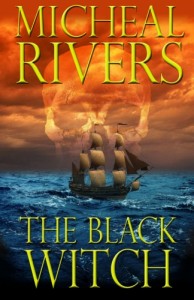
The Black Witch
Q: As an Indie-Author, where do you see the future publishing industry heading? New writers always have questions whether to first go traditional – agents, the big houses or the Indie route. What would you advise someone who talks of wanting to write a novel one day?
MR: Technology is not just the wave of the future. Books will always be here but in these times and the future, reading a book electronically will be for the man of the future. Something will come within the next few years that will make even the Kindle obsolete, but you will still be reading the books electronically. Agents and the big six are trying to find a way to assimilate now. As far as writing a novel is concerned I think everyone should be aware writing is not a part time job. It is a profession that limits you in a lot of ways with long hours. Socializing pretty much goes out the window except in small spurts. I would advise new writers to go indie in the beginning and test the waters to see if their style is accepted by the public. Unless you are an exceptional writer the large houses won’t even talk to you. Beware of agents!!! The good ones are hard to get and the bad ones will take your money and you’ll see no benefit from anything they have done. Mostly with this type agent they are waiting for you to make the money so they get paid for doing nothing.
Q: You are a ghost hunter with the Smokey Mountain Ghost Trackers of Western North Carolina. Most people have seen the popular televisions shows. How did you get interested in the paranormal? How does television compare to real ghost hunting? Has there been any particular incident to make the hair rise on your neck and arms?
MR: I grew up in a haunted house. Many have said this, but this house was definitely no joke. With my ancestry I was taught how to interact with the paranormal or spirits. We learned they were a fact of life and were looked on as being no different than visiting your neighbor. Always show respect to the spirits so the elders teach. I wound up collecting stories from other countries while I traveled and had experiences. I wanted to know what else was out there besides the ghosts at home. In my opinion Ghost TV will never compare to the real deal. There are things they miss while trying to shoot an episode as well as other things I will not go into. Incidents that raised hair, you bet and more than one. I have never been near or seen anything that actually scared me, not even combat. But I will say there have been several instances where ‘things’, for lack of a better word, stopped me in my tracks. Case in point I came face to face with something in the Belgian Congo that passed through me and kept traveling. The other men there couldn’t believe what we were seeing and to describe it would take a miracle. I have a million stories on the paranormal from all over. My favorite was the child from Bom Bom island in Africa.
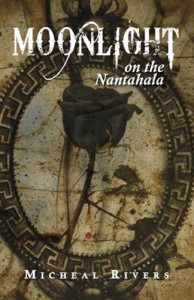
Moonlight on the Nantahala
Q: Your website shows a project in progress: “Appalachian Mountain Folkore.” Will this have a paranormal basis? Can you give us some information on the book?
MR: Appalachian Mountain Folklore will be released by my other publisher (Schiffer Publishing Ltd) later in the season. It covers folktales and lore from the mountains of North Carolina. There are a few tales in here that are rarely heard and all are written from the aspect of the way the Native Americans interacted with the Europeans of the times. Two are from tales passed through my family. A lot of paranormal elements in this one for sure.
Q: Where can readers contact you, find your books, more information about you, and keep informed of your future events?
MR; I would love to hear from anybody who wants to say hello or has a question for me. You can contact me at michealrivers.com http://bit.ly/kcThdo and my books may be found at Amazon.com http://amzn.to/uHpPD6 It was great privilege to be here today and thank you for your service. I do want everyone to know through the years a lot of Marines have given their life for others, they are not forgotten. They have passed from us and now they all are standing their post in a military manner safe guarding those they left behind. For those who are not aware Semper Fidelis is not just a quote; it is the essence, the life, and the soul of a United States Marine for eternity.
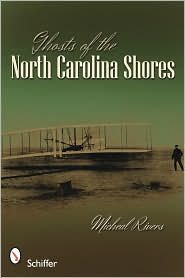
Again, thank you, Micheal, for sharing your time and thoughts with us. I know we’ve had to skip a lot of questions, but possibly another day we can have a “Micheal Rivers, Part Two” interview.
And before closing, I want to thank you as well for your service in Vietnam as a U.S. Marine.
Semper Fi,
Glenn
Excerpt for Verliege
Near the center of the cemetery the mausoleum beckoned them to draw closer. From their position they could not see the front of the mausoleum. Two sides could be clearly seen, appearing unusually clean. Emery did not approach the mausoleum immediately. He stood squinting in the morning sun, trying hard to find a reason why the stone structure had not aged over the years.
He had learned early in his career not to advance too quickly upon a scene that did not feel right. Raising his camera to his eye, he adjusted the long-distance lens to bring the mausoleum closer. Something was wrong. The stone was too perfect in every way. He could not find a single flaw.
Weis spoke softly. “We may find something of interest within the tomb.”
Emery spoke without taking his eye off of the mausoleum. “I think we should skirt around it and approach it from the front. It doesn’t feel right to me. Take a look through your camera and tell me what you see.”
Weis raised his camera and inspected the walls of the mausoleum carefully. “I don’t see anything unusual.”
Emery laughed lightly. “Look again. The stonework has not aged a day. There are no cracks or signs of erosion as there should be.”
Weis looked once more, realizing Emery had been correct in his observations. Carefully they walked in a large circle to enable them to see the front of the mausoleum. Standing a safe distance away, they saw that one of the doors was partially open, allowing them to see the darkness of the interior.
Stepping slowly forward toward the open door, each man prepared himself for a possible intruder. Emery approached the open door at an angle to help protect himself. Time slowed to a crawl. Reaching for the door to open it farther, Emery’s fingers had barely reached the handle when it slammed shut violently.
They both jumped back away from the door, and Weis fell over a broken headstone behind him. A loud moan echoed through the air around them.
Weis gained his feet, shaking his head. “I am not going in there. Whatever it is, I’m happy to leave it in there.”
Emery grinned. “Sorry, Weis, but I have to see what the moaning is about.”
He reached forward and jerked the door open with a vengeance. Shining his light inside, he found the mausoleum empty except for the neatly stacked burial coffins. Emery turned, questioning what he was seeing. “There is nobody there, Weis. I guess the moan was the rusty hinges and a little imagination.”
Weis disagreed. “The door was shut before we heard the moan. Do you think you can tell me who shut the door? I think not. It is too heavy to close on its own. I’m leaving.”
Emery watched as Weis started to walk away. The incident had shaken him badly.
Weis was glad he had taken pictures of the open door before it had slammed shut. It was hard for him to shake the feeling that there was someone close behind them as they made their way back across the bridge. Turning back toward the cemetery when he was at the foot of the bridge, he glimpsed a large black shadow disappearing into the trees.
by Glenn | Mar 28, 2012 | General, Writing
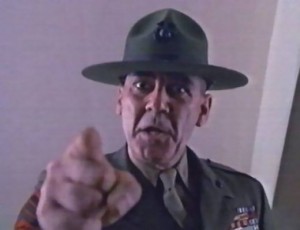
"Do you call yourself an author, Twinkle Toes?"
There are a variety of challenges – finding time to write, making daily word counts, keeping up with the promos for your books, staying alive on social media networks, and a hundred more which could be listed…But I’m not talking about any of these.
Let’s fast forward ahead in life and say you already have a couple of novels under your belt. They received good reviews and you feel you’re on the road to churning out more literary greats. The challenge I’m referring to here is: “Have you really given your best writing to your readers?”
Writing is a creative process and a tough one to boot. Possibly you only remain within one genre or like me crossover into several…but regardless of the genre, your novel needs to be compelling. The dialogue must have sufficient meat to it for a reader to chew on for days. The action must course a reader’s veins with the force of a raging adrenaline rush. And when the last page arrives, the reader must be addicted to your words and direly in need of more, so much in fact they go in search of your next novel.
At any moment in time there are hundreds of free eBooks you can download to fill your Kindle, Nook, or iPad. As any writer should, I read a variety of these works. I’ve found diamonds in the rough with these free eBooks, and I’ve discovered a lot of junk promoted as “5 Star Reviewed” books. I found the common denominator in the “5 Star” junk was quantity and quality: the author appeared to have been writing solely to accomplish some daily quota of word quantity rather than write for daily quality. There was evidently no personal challenge to push the author. The author seemed to be rushing to make parts fit, rushing to get to the end, and definitely rushing to get their book released.
The authors did not challenge themselves. The writing was bland or mindless. It didn’t make the reader pause and think about the passage just read. And of course, the poor writing was another nail in the proverbial indie-author coffin.
 To challenge yourself as a writer means to create to the fullest extent of your mind’s abilities. Do your readers feel your book as they read? Have you given them something that truly sticks in their minds? Good books do that. Good books are not written based upon fads of the day. They withstand the test of time and make their readers return another day to read them once more.
To challenge yourself as a writer means to create to the fullest extent of your mind’s abilities. Do your readers feel your book as they read? Have you given them something that truly sticks in their minds? Good books do that. Good books are not written based upon fads of the day. They withstand the test of time and make their readers return another day to read them once more.
I’ve repeatedly read “The Assyrian” by Nicholas Guild and “The Wolf’s Hour” by Robert McCammon. With Guild’s books I always wondered if he mentally burned himself out with that book because of the strength and depth of his dialogue, and the thought processes he put into their creation. McCammon’s book was intense from beginning to end and maintaining such an energy level throughout the entire book must have drained him as well.
Challenge yourself to write a novel that is not your normal genre. You would be amazed at what you will learn about yourself and your ability to write. 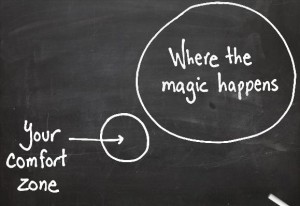
I read an article by McCammon about how horror novels had moved away from being what ‘true’ horror novels should be. In brief, he stated they had become nothing more than blood and gore spectacles because that was an easy way out for the writers. His complaint was that writers were failing to invoke the mental terror aspect which should be ever present. Failure to do so only left a ‘rubber-stamped’ bloodletting which was the easy way to write…. When the writers couldn’t think of good storyline to invoke fear in a reader, they simply had some nutcase run around slashing throats. As I read McCammon’s article it struck me: the authors had not challenged themselves to create the best story possible.
Take some time to examine your work. Look at your recent writings and be brutally honest with yourself about it overall. What separates your novel from a great writer in the genre you’ve chosen? What is missing within your writings? If you look hard enough, you may find it is the level of creativity – the challenge to produce a better work than the last.
 writing since 1975, has been published around the world with many of his works being international bestsellers, and as Publishers Weekly described him, is “…a master of timing, plot and style.” From The New York Times Book Review to the Washington Post, Nicholas Guild has received accolades aspiring writers dream of, and published authors wish for. I’m honored to present this article written by him for my website. His generosity in setting time aside to do so during his hectic schedule is truly appreciated. There is much to learn from my friend and I hope you will enjoy this as I did.
writing since 1975, has been published around the world with many of his works being international bestsellers, and as Publishers Weekly described him, is “…a master of timing, plot and style.” From The New York Times Book Review to the Washington Post, Nicholas Guild has received accolades aspiring writers dream of, and published authors wish for. I’m honored to present this article written by him for my website. His generosity in setting time aside to do so during his hectic schedule is truly appreciated. There is much to learn from my friend and I hope you will enjoy this as I did. THE CHARACTER OF CHARACTER by Nicholas Guild
THE CHARACTER OF CHARACTER by Nicholas Guild
 Of course not all flat characters are comic. Television abounds with heroic types who are essentially flat. My personal favorite was always Steve McGarrett of Hawaii 5-O (if anyone remembers that series). He had a vocabulary of about four words—“Book ‘em. Murder One!”—and it is impossible to imagine what his childhood would have been like. But generally speaking we expect non-comic characters in fiction to have a little more depth. To use Forster’s term, we expect them to be “round”.
Of course not all flat characters are comic. Television abounds with heroic types who are essentially flat. My personal favorite was always Steve McGarrett of Hawaii 5-O (if anyone remembers that series). He had a vocabulary of about four words—“Book ‘em. Murder One!”—and it is impossible to imagine what his childhood would have been like. But generally speaking we expect non-comic characters in fiction to have a little more depth. To use Forster’s term, we expect them to be “round”. Of course fictional characters have the advantage of being knowable in a way real people simply are not.
Of course fictional characters have the advantage of being knowable in a way real people simply are not. even taste them. Yet we are constantly being blindsided by our fellow mortals and discovering that the person we thought we knew doesn’t exist, is actually another sort of person altogether, and the reason this happens is not difficult to discover.
even taste them. Yet we are constantly being blindsided by our fellow mortals and discovering that the person we thought we knew doesn’t exist, is actually another sort of person altogether, and the reason this happens is not difficult to discover. A student of mine once wrote a story about the interior life of a girl in a coma. The problem was that the girl had reached this state by mixing drugs and alcohol, which my student seemed to regard as the moral equivalent of being struck by lightning. It took me a while to convince her that the reader would judge her character negatively and that this would affect the impact of the story in ways she hadn’t anticipated and didn’t want.
A student of mine once wrote a story about the interior life of a girl in a coma. The problem was that the girl had reached this state by mixing drugs and alcohol, which my student seemed to regard as the moral equivalent of being struck by lightning. It took me a while to convince her that the reader would judge her character negatively and that this would affect the impact of the story in ways she hadn’t anticipated and didn’t want.

















